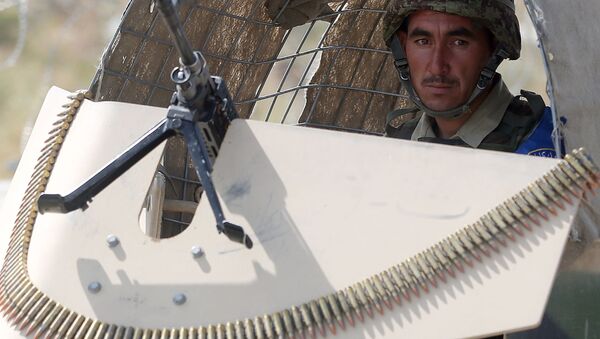According to Deutsche Presse-Agentur (DPA), alliance members have approved a classified report that will see NATO boost its support for Afghan forces, including the sharing of intelligence with local authorities to help prevent a repeat of recent incidents where government forces were unprepared for a Taliban attack.
I've just spoken to Pres @ashrafghani on the phone about the future #NATO engagement in #Afghanistan. https://t.co/3yaQ5OU8Qg
— Jens Stoltenberg (@jensstoltenberg) October 22, 2015
Citing diplomatic sources, DPA also reported that NATO trainers are to be deployed to some of the country's worst hit conflict zones, where airstrikes could be provided as protection in emergency situations.
While NATO has not confirmed the claims or commented on the contents of the report, officials said that the situation in Afghanistan would be discussed at a meeting of foreign ministers to be held in Brussels next week.
The rate of women joining the ANP is rising. Instructors train candidates on weapons handling & marksmanship #Afghan pic.twitter.com/wjsJojXgWa
— Resolute Support (@ResoluteSupport) May 8, 2015
It's thought that member states are set to boost their troop contributions to all NATO missions in the lead up to next week's minister's meeting.
At present, NATO's 'Resolute Support' training mission in Afghanistan consists of around 13,000 troops, who are restricted to self-defense duties rather than combat.
Trainer says Afghan Special Ops troops have come a long way: http://t.co/0fgpCamNuj pic.twitter.com/hoSHKx7KCD
— Resolute Support (@ResoluteSupport) June 15, 2015
However, since the official cessation of NATO's combat mission in December 2014, there have been fears that local authorities are unable to effectively fight against a growing Taliban insurgency.
These fears were exacerbated last month when Taliban forces took control of Afghanistan's fifth largest city of Kunduz. Although the group left the city 15 days later, many locals were left unconvinced that Afghan forces could hold off future attacks.
NATO, and in particular the US, has been criticized for its approach to Afghanistan, with many arguing that the withdrawal of allied troops occurred before local authorities were strong enough to counter opposition, leading to an opportunity for groups like the Taliban to increase their influence.


